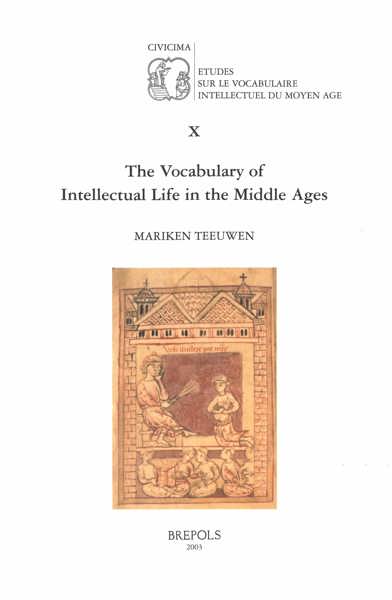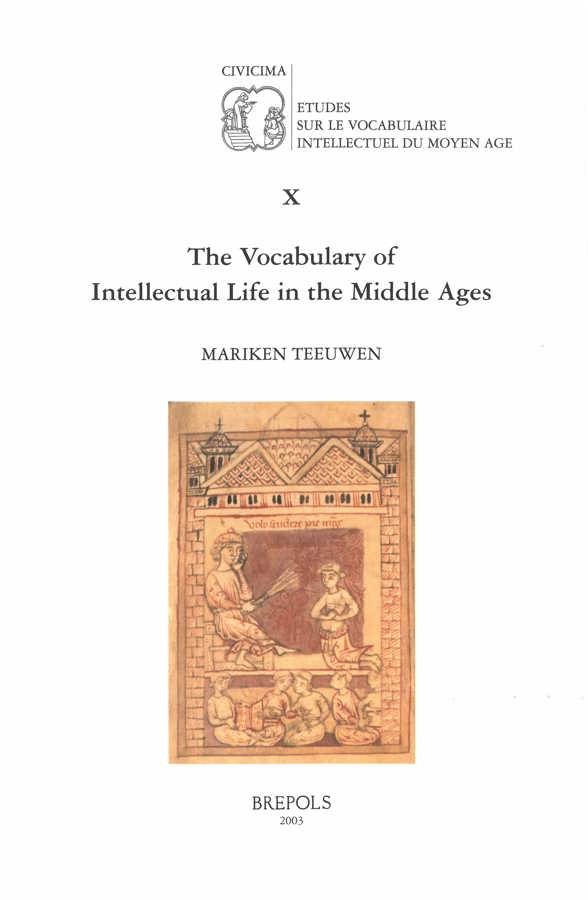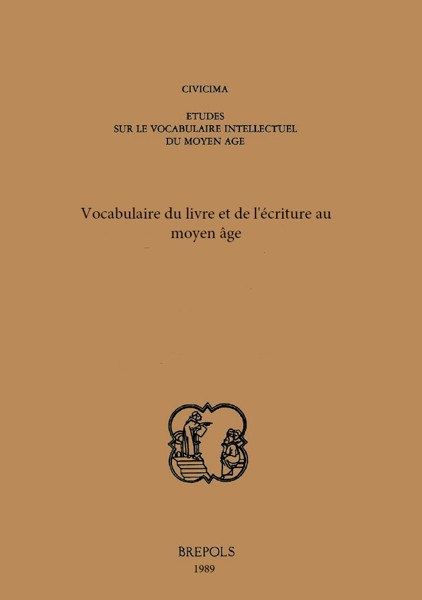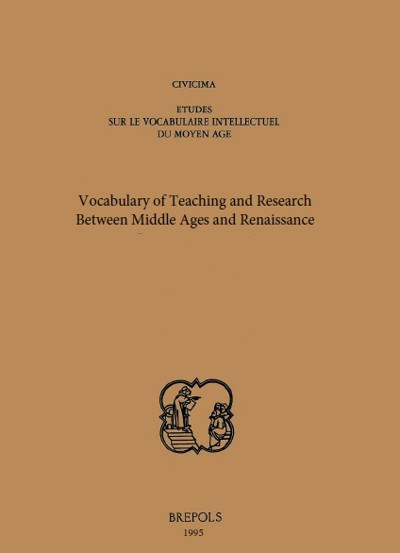
The Vocabulary of Intellectual Life in the Middle Ages
M. Teeuwen
- Pages: 482 p.
- Size:160 x 240 mm
- Language(s):English
- Publication Year:2003
- € 60,00 EXCL. VAT RETAIL PRICE
- ISBN: 978-2-503-51457-4
- Paperback
- Out of Print
- € 60,00 EXCL. VAT RETAIL PRICE
- ISBN: 978-2-503-55746-5
- E-book
- Available
« On ne peut que se réjouir de l'achèvement de ce projet, qui a suscité l'intérêt des philologues, des historiens du livre et des linguistes.»
(M. Cacouros dans Scriptorium, 2005, 1, p.129*, n°321)
« The book brings to a fine conclusion the research agenda of CIVICIMA and can be consulted with profit. »
(F.T. Coulson in Speculum, 84 (2005), p. 1374)
The Latin vocabulary of intellectual life in the Middle Ages has been the focus of the CIVICIMA-series: nine volumes of conference-proceedings, monographs and collective works. The series has proved convincingly that analyses of the verbal expressions of medieval intellectual life and their precise meanings is a worthwhile and rewarding task, which sharpens and deepens our understanding of education and learning in the medieval world.
With this tenth volume the series has been brought to a conclusion. It serves as a handbook, a practical tool for finding information and material about a considerable number of key terms, which have been classified in four categories of “technical vocabulary” — terms that developed specialized meanings in the context of medieval education and learning. The first category consists of the vocabulary of schools and universities (for instance, schola, magister, universitas, etc.); the second the vocabulary of the book and book production (for instance, armarium, pecia, scriptorium, etc.); the third treats the vocabulary of teaching-methods, instruments and products of intellectual life (for instance, concordantia, disputatio, glossa, etc.); the fourth the names of the disciplines, their teachers and students (for instance, artes liberales, canonista, decretista, theologia, etc.).
Terms from these four categories are treated, either individually or in groups coherent with respect to content, in short and uniform articles. Their medieval meanings are described, together with their origins, their classical meanings, their semantic development, and the historical or regional differences in meaning.




